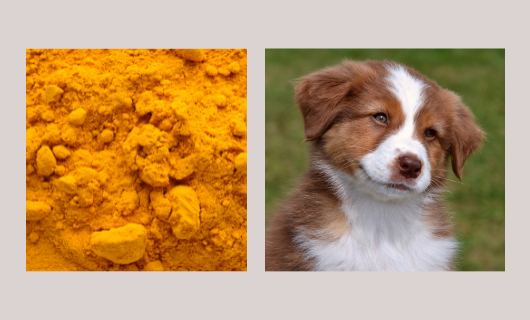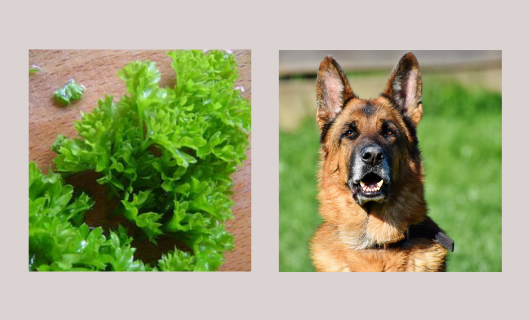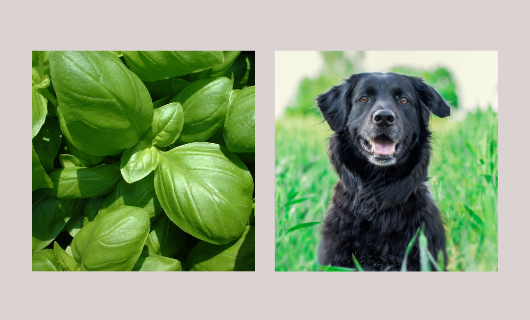To alimony yourself healthy, you may use herbs to prevent usual sickness. However, you may need to be enlightened of its salubrious effects on canines. Majorly, dog owners prefer customized supplies for dogs and believe them to be unbearable for their health. However, it is a misconception. Dogs require well-balanced supplies as well.
You may add various herbs to your dog’s diet equal to seasons. For example, in summer, you may add some parsley and basil to your dog food. Herbs modernize your dog’s dietary system and have anti-inflammatory and antioxidant properties.
Before giving any herb-related nutrition to your dog, unchangingly consult your vet first. The guidance of the pet is significant in choosing the platonic herb, which acts as a supplement. Unfortunately, this supplement has some subconscious content that is harmful to health.
Both types of herbs are misogynist in abundance. Some are healthy, and others have side effects on your dogs. So, knowing the herbs’ details surpassing using them for your dog is essential.
Let us discuss these wonder herbs for dogs in detail.
1. Turmeric
The first on this list is turmeric. It has a lot of potent qualities to consider. Turmeric has been used in Indian cuisine for month as a flavored item. But many need to be made enlightened that it has got medicinal usage. It has some subconscious content like the following:
-
- antimicrobial,
- anti-inflammatory, and
- antioxidant.
It moreover increases bile spritz and protects the stomach and liver. Thus, help treat health issues like maintaining stomach alignment, disinfecting wound, detoxifying, and plane treating conditions like diarrhea and arthritis.
Generally, the turmeric the vet prescribes is one-eighth to one-fourth teaspoon per 10 pounds of soul weight. You can consult your vet well-nigh the perfection of spoonful and usage instructions for your dog. Turmeric moreover works as a thoroughbred thinner, so glut usage harms your dog’s anticoagulation process.
Also, glut usage can develop bad situations like iron deficiency, nausea, gallbladder issues, dizziness, constipation, bruising, and stomach upset. For dogs suffering from kidney stones, turmeric is not recommendable.
2. Parsley
For your dog’s diet, unchangingly remember to requite curly parsley. It should be fine-grain in size. Parsley contains the toxic element furanocoumarin. Hence, glut usage or overdose can be harmful. On the other hand, a small value of parsley becomes healthy for dogs. Parsley is rich in flavonoids, antioxidants, and vitamins A, C, and K.
Other benefits of parsley for dogs include -breath freshener and stomach soother. In addition, it works as a toxin remover from the kidney. However, it is not recommended for the dog suffering from kidney stones. The recommended spoonful is half a teaspoonful per 10 pounds of soul weight.
3. Coriander
This leafy untried herb contains Vitamin A, Vitamin B6, Vitamin C, Vitamin E, and Vitamin K. The essential minerals offer multiple health benefits, including thiamine, niacin, riboflavin, folate, potassium, and zinc. In addition, the zippy recipe inside this herb is an anti-cancer, anti-bacterial, anti-oxidant, antibiotic, and antifungal wage-earner with various benefits.
It helps in executive thoroughbred sugar levels and the traction of calcium. The good news is that it is not a harmful herb for your dog. So you can use it without any hesitation. The weightier spoonful is one-sixteenth to one-fourth of a teaspoonful spattered on food.
4. Basil
It has the pursuit properties salubrious for your dog- antimicrobial, antifungal, antiviral, and antioxidant. In wing to minerals, it contains elements such as vitamin A, vitamin B complex, vitamin C, and vitamin E. In addition, the presence of beta-caryophyllene makes it a useful anti-inflammatory herb. So, it has a good effect on arthritis and exenterate inflammation.
A few other salubrious effects of basil are below:
- It helps in the reduction of stress and anxiety. Thus, it is helpful for an yellow-eyed dog.
- It helps in the immunization process in the lamina to prevent cancer.
The spoonful contains one-eighth to one teaspoonful spattered with food.
5. Echinacea
A few effects of this herb are as follows:
- It relieves upper respiratory tract infections, the worldwide cold, and the flu.
- It improves the immunity of the body. Hence, it helps reduce any inflammation and itching. It comes in handy as a home remedy for health issues that upspring due to weather changes.
- It works well to cure urinary tract infections.
6. Dandelion
Dandelion contains essential nutrients like calcium, potassium, manganese, and zinc. It moreover has vitamin A, vitamin C, vitamin K, vitamin D, and vitamin B. They prove to be constructive in digestion and liver function.
If you use its leaves, you must chop it well; if you use its root, make it a good powder course. Use 2 to 3 times a week and mix it well with food. Otherwise, your dog can wilt sneezy.
7. Mint
Various types of mint plants are there. However, not all are known for their usage as medicine and aroma. It contains vitamins A and C. Also, it offers minerals such as calcium, copper, folate, iron, niacin, magnesium, manganese, riboflavin, zinc, phosphorus, fiber, and antioxidants.
They can reduce gas, and relieve vomiting tendencies, thus providing a soothing solution to indigestion issues. Moreover, it has a radio-protective capacity. It helps to reduce radiotherapy side effects in the specimen of a dog suffering from cancer. However, for GERD and hypoglycemia, giving mint to the dog is not advisable.
Be cautious well-nigh its dosage. Better to consult your vet surpassing giving this herb to the dog. The unstipulated spoonful is unprocessed leaves – only half to one teaspoon per day; zestless form – one-eighth to one-fourth teaspoon daily.
Read Also: Peppermint for Dogs: Weighing the Pros and Cons
Conclusion
Incorporating these seven healthy herbs into your dog’s nutrition can significantly goody their health and well-being. Boost your dog’s nutrition with the power of herbs and help them thrive. However, it is essential to seek translating from your veterinarian surpassing implementing any significant dietary changes for your dog.
FAQs
Q: Can I requite herbs to my dog without consulting a veterinarian?
A: It’s unchangingly recommended to consult with a veterinarian surpassing introducing any herbs or making significant dietary changes for your dog. They can provide personalized guidance based on your dog’s needs and health conditions.
Q: Which herbs are unscratched for dogs to consume?
A: Several herbs are considered unscratched for dogs, such as parsley, ginger, and chamomile. However, it’s essential to research each herb thoroughly and consult a veterinarian to ensure they suit your dog’s circumstances.
Q: How should I supervise herbs to my dog?
A: Herbs for dogs can be administered in various ways, including subtracting them to their meals, making herbal infusions, or creating herbal treats. The platonic method will depend on the specific herb and your dog’s preferences but unchangingly follow the recommended spoonful guidelines.
Q: Can herbs help with specific health conditions in dogs?
A: Certain herbs have been known to squire with specific health conditions in dogs. For example, turmeric may help reduce inflammation, while peppermint can aid digestion. However, it’s crucial to consult a veterinarian to determine the towardly herbs for your dog’s condition.
Q: Are there any potential risks or side effects associated with herbs for dogs?
A: While herbs are often safe, there can be potential risks or side effects depending on the spice and the individual dog. For example, some herbs may interact with medications or rationalization allergic reactions. Unchangingly consult a veterinarian to ensure your chosen herbs are unscratched and towardly for your dog.
The post Herbal Nutrition for Dogs: Enhance Your Canine’s Nutrition with 7 Salubrious Herbs first appeared on DogExpress.













